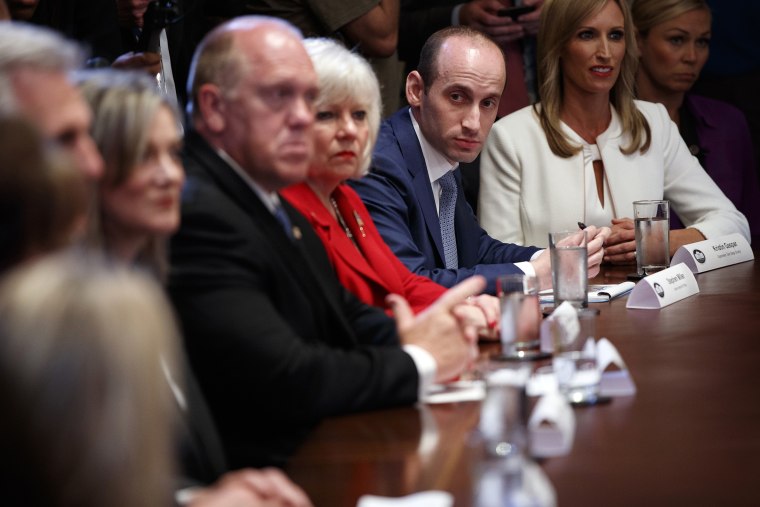David Glosser, uncle of White House senior adviser Stephen Miller, spoke out against his nephew's work crafting the White House's immigration policies on MSNBC’s "Andrea Mitchell Reports" on Tuesday, calling for compassionate policies and bringing up the family's roots as refugees.
Glosser particularly condemned the Trump administration's short-lived policy of separating families at the southern border in order to prosecute the parents.
"I'm unable to speculate about what [Miller] understands and what he doesn't understand" about the effects of such a policy on children, Glosser said on MSNBC, before adding, "you really don't have to be a physician or scientist or psychologist to understand the consequences of separating children from their parents. Everybody knows this."
Glosser first publicly condemned his nephew in an op-ed published in Politico on Monday, detailing his family's history fleeing from religious persecution and building new lives in the U.S.
“I have watched with dismay and increasing horror as my nephew, an educated man who is well aware of his heritage, has become the architect of immigration policies that repudiate the very foundation of our family’s life in this country,” Glosser wrote in Politico.
On MSNBC, Glosser said that U.S. immigration policy "has to be thought of in a compassionate thoughtful way based on facts, based on our nation's resources and based on the demonstrated national expertise in settling refugees.
"If you take a look, it's not just you and me that are the children or the grandchildren of refugees desperately seeking escape from danger. Almost all of my friends, all the people I talk to, pretty much anybody you can speak of in the United States, they ended up here for that reason too," he said. "The only people who don't have a story like that are Native Americans and black Americans, all of whom have their own tragic stories about immigration, be it forced or forced upon them."
